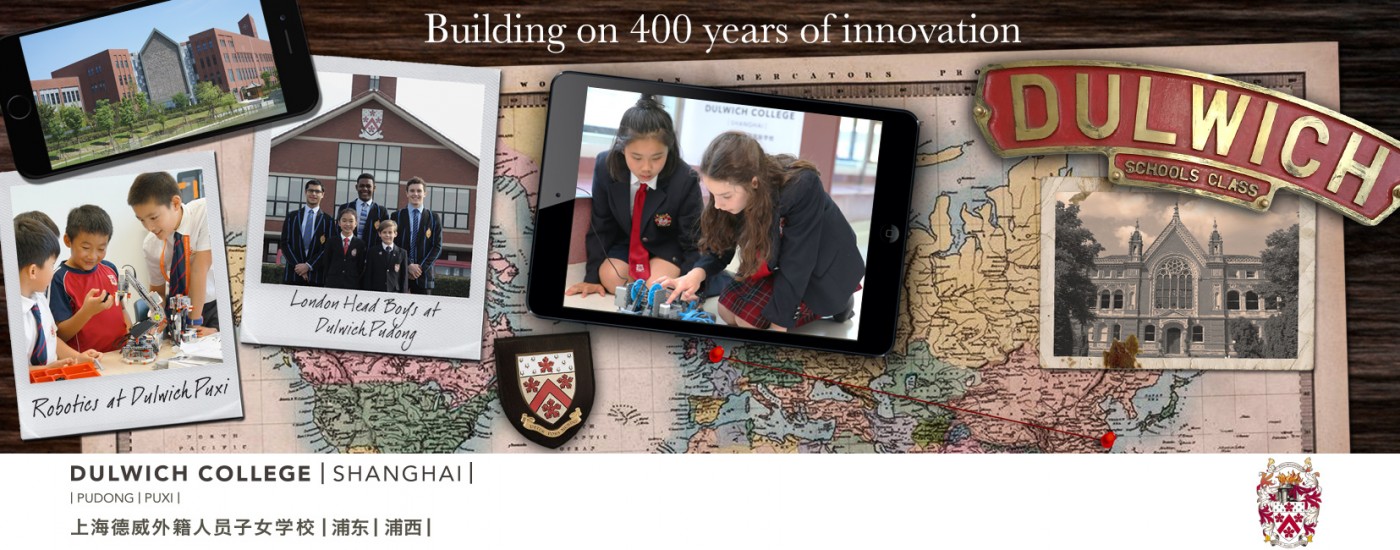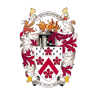Building on 400 Years of Academic Innovation

Our Heritage - An Interview with Mr Fraser White
Interview with Dr Cameron Pyke, the Deputy Master of Dulwich London about our school heritage
We value our family links with Dulwich College and recently spoke with Dr Cameron Pyke, the Deputy Master of Dulwich London about our school heritage. In this interview, Dr Pyke reflects on our 400 year history of academic innovation and the very bright future for our international family of schools.
2. Dulwich College has a history of being progressive in curriculum development; one of the first schools to introduce a science curriculum, one of the first schools to introduce a systematic Mandarin curriculum. What’s next on the horizon for the Dulwich family of schools?
I am excited by the continued focus on providing a first-class holistic education and a range of opportunities for all students. If I were to highlight three specific areas of innovation, they would be: the development of all aspects of wellbeing (including digital safety) as core to the school curriculum; the innovative thinking regarding closely linking the teaching environment to student outcomes at primary school level; and the inaugural Tech Expo 2018 at Dulwich College Beijing in January 2018, which will consist of three days of team work and hands-on interdisciplinary learning. We are also excited by the continuing development of free learning, that is learning outside the classroom, often across subjects.
1. Dulwich College has a 400 year history of academic rigour and innovation in education. What have been the historical highlights leading to Dulwich College’s educational success?
Firstly, the entrepreneurial streak of Edward Alleyn, our Founder. He was by no means a conventional figure, given his colourful career as an actor-manager and his wish, at the end of his life, to give back to society, through education, as thanks for the gifts and the commercial success he’d been given. I see this willingness to grasp opportunities, whilst never losing sight of the privileges one has been given, and the community of which one is a part, as core to the ethos of Dulwich College.
Secondly, the educational vision of Canon Carver, the Master who presided over the re-founding of the College on its present site in the second half of the nineteenth century. Carver thought it vital that, in addition to the traditional public school curriculum of Classical subjects, the new College should embrace practical disciplines such as Medicine, Science and Design and Technology. That’s why the College has always excelled in both Humanities and Sciences and strongly favoured interdisciplinary approaches.
Finally, as the world has become a smaller place over the last century, the College has instinctively looked outwards: through its boarding community and, since 2003, through the growth of the Commonwealth of Schools. This also partly reflects the particular heritage of London as a world city and commercial hub, which Alleynians have always embraced enthusiastically.
3. From London to Shanghai, and across the world. What does Dulwich College see as the biggest benefit of a global network, and does it really impact students’ everyday lives?
All of our students are very busy and one of the advantages of technology is that they instinctively think internationally. Certainly a commitment to internationalism through the Commonwealth of Schools gives all students a sense of being part of something bigger. Last January, for example, when our School Captain and two Vice Captains attended the leadership Conference in Shanghai and worked collaboratively with their opposite numbers, in their discussions, and their identification of action points, they became greater than the sum of their parts. There are, of course, many other positive ramifications of a global network, not least that staff appreciate that they are part of the Dulwich family and can share in a wider network of professional advice and support.
4. Dulwich College is known for strong academic results. How do you maintain that level of quality and consistency across all of your schools?
Through a shared commitment, through partnership, to the highest standards. The DCI Directors of Schools work very closely with the Headteachers of the individual schools to ensure the best possible outcomes for the students. In addition to that, I or a fellow Deputy Master from London inspect each of the schools once every year to gain reassurance that a first class holistic education is being provided: I meet a variety of staff, students and parents and produce a formal report for DCI. Finally, the Heads themselves and the DCI team devote a considerable amount of time to recruiting first-class teachers and organising an extensive induction programme to ensure a full understanding of what a Dulwich education entails.
5. Grit. There is a popular view that education needs to be more “gritty” and prepare children better for the “real world”. What is your view, and how do Dulwich schools prepare students for life beyond the classroom?
What I think a school can do is to develop a student’s self-knowledge and empathy towards others, together with a versatile skill set and a life-long love of learning. These elements grow through the formal academic curriculum, but also through each school’s co-curricular programme and pastoral and counselling programmes. In this sense, a good school provides both roots and wings. The fact that Dulwich students proceed to such a wide variety of universities and careers, and fulfil their potential there, is indicative of the real partnership at school between students, teachers and parents which I see in the schools when I visit.
6. What are the qualities that define an exemplary Dulwich student, and might those qualities differ between Dulwich College and the international colleges?
I value the great variety amongst Dulwich students, in their interests and enthusiasms. What I think they have in common is that they are inquisitive, open to learning from others and (in the broadest sense) creative thinkers. I think these qualities are shared, though I also value the fact that the Dulwich schools have – through their international and local contexts - developed a distinctive identity in their own right, which is entirely complementary to what we are aiming to achieve in London. I learn as much from the students in one of the Dulwich Schools overseas as I do from my own students in London. They also share a healthy sense of humour!






